Inside Morocco’s 2026 World Cup bid: Against powerful foes, does the African nation have a chance?
Up against the joint might of the United States, Canada and Mexico, Morocco needs all the help they can get. So why has the Confederation of African Football been hesitant in its support?
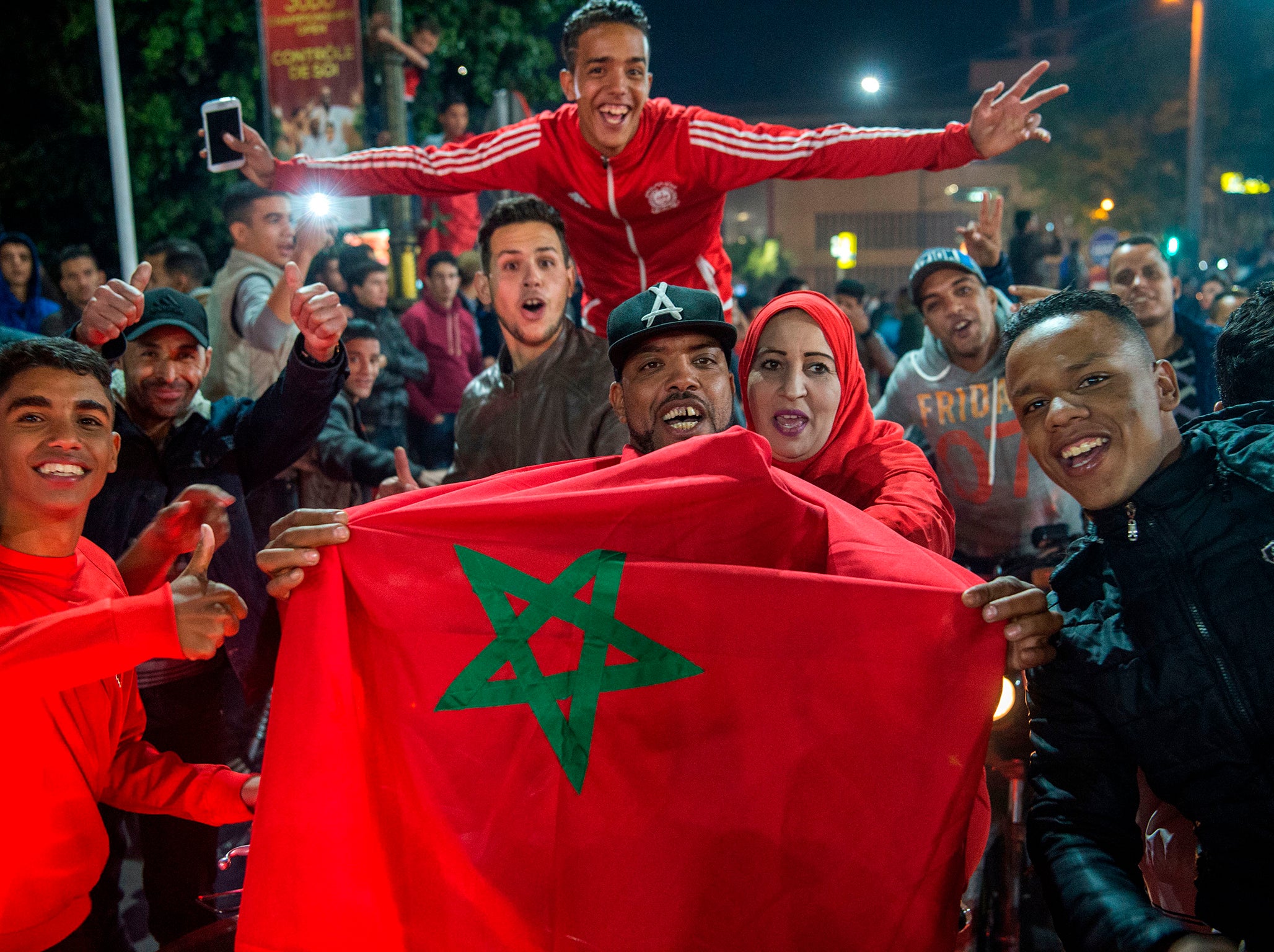
Your support helps us to tell the story
This election is still a dead heat, according to most polls. In a fight with such wafer-thin margins, we need reporters on the ground talking to the people Trump and Harris are courting. Your support allows us to keep sending journalists to the story.
The Independent is trusted by 27 million Americans from across the entire political spectrum every month. Unlike many other quality news outlets, we choose not to lock you out of our reporting and analysis with paywalls. But quality journalism must still be paid for.
Help us keep bring these critical stories to light. Your support makes all the difference.
At the end of the CAF Congress on Friday morning, CAF president Ahmad Ahmad had the stage, and the opportunity to throw African football’s support behind Morocco’s bid to host the 2026 World Cup. At the Hyatt Regency hotel in Casablanca, underneath a portrait of Morocco’s King Mohamed VI, it was a chance to rally behind what would be Africa’s second ever World Cup.
But all Ahmad could manage was this equivocation: “Let the best bid win”.
The Moroccan media were frustrated that there was no declaration of CAF support for their bid. Up against the joint might of the United States, Canada and Mexico, Morocco needs all the help they can get. In his press conference after the congress, Ahmad Ahmad was bombarded with questions about why he had not thrown his vocal support behind their bid.
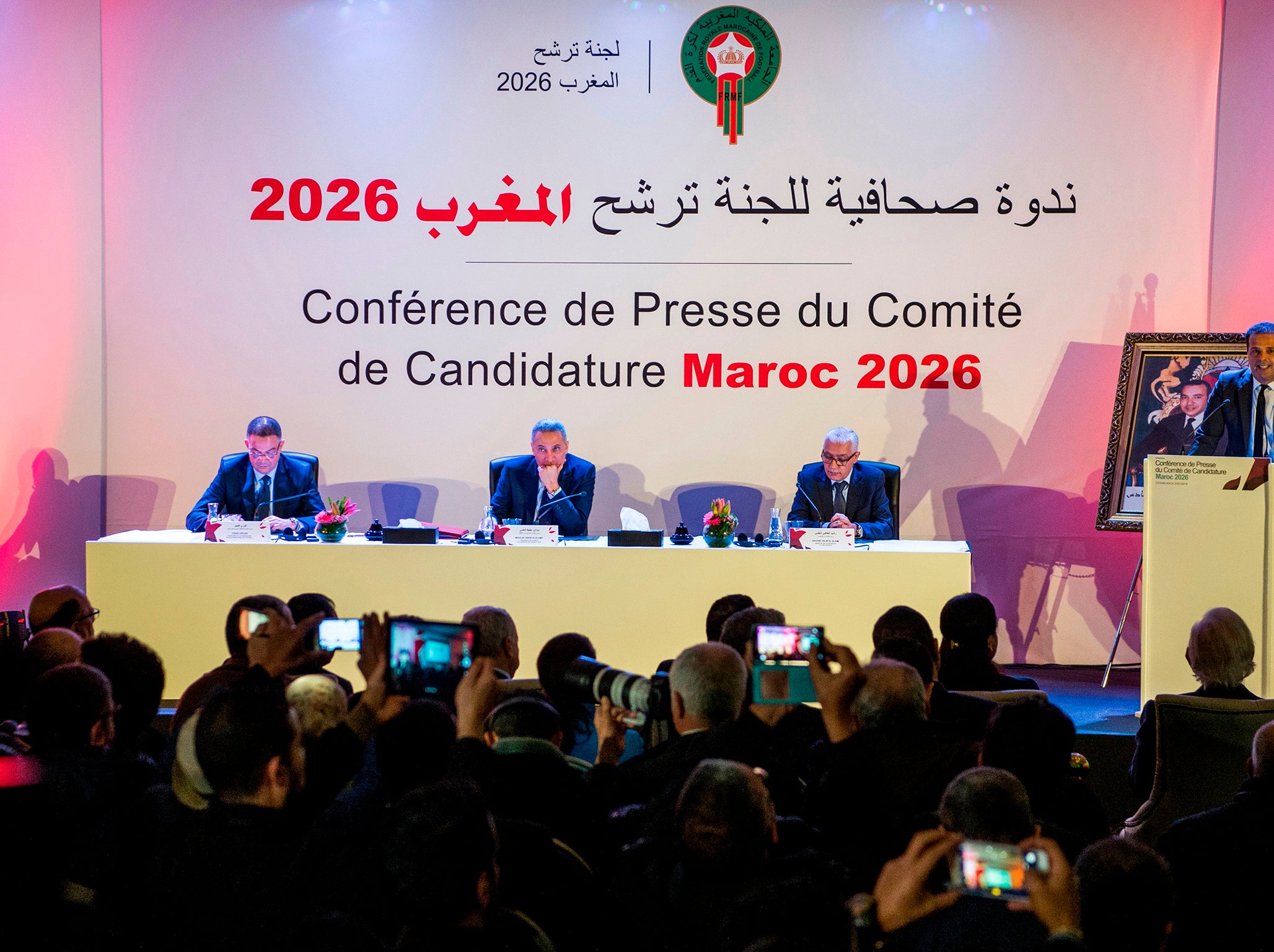
Ahmad explained that due to FIFA reforms there are now “demands, in terms of ethics and regulations” that everyone must respect. When pressed again and again whether he was now neutral between Morocco and the American-led bid, Ahmad became animated: “I guarantee you that I will not be neutral,” he said, waving his arms. “I will not be neutral! I guarantee it! I say it high and loud in front of you!”
So why couldn’t CAF say what they wanted to say? How had they been gagged? One week before the CAF Congress, FIFA secretary general Fatma Samoura had sent a circular round to all member associations – who will vote for the 2026 host in Moscow on 13 June – forbidding them from endorsing a bid. “All officials shall refrain from publicly making any written or oral statements of any kind,” she wrote, “whether adverse or otherwise, about the bidders in relation to their bids.”
Those are the regulations Ahmad referred to as limiting what he could say in support of Morocco 2026. All Ahmad can do, in his own words, is to “see, step by step, what will be our margins for manoeuvre, related to the legal text”. Given all the obvious advantages enjoyed by the American-backed bid, which Gianni Infantino has himself praised for its “positive message”, these speech restrictions only reinforce how difficult it will be for Morocco to win.
But when Hicham El Amrani, chief executive of the Morocco 2026 bid, spoke to The Independent the day after the CAF Congress, he insisted that he supported FIFA’s new rules, and did not feel let down by CAF’s lack of support. “We’re not disappointed,” said El Amrani. “We’re supporting as well the FIFA regulations, we’re following the neutrality rules. And the CAF leadership has made no secret of their wish to support. We have absolutely no issue with that.”
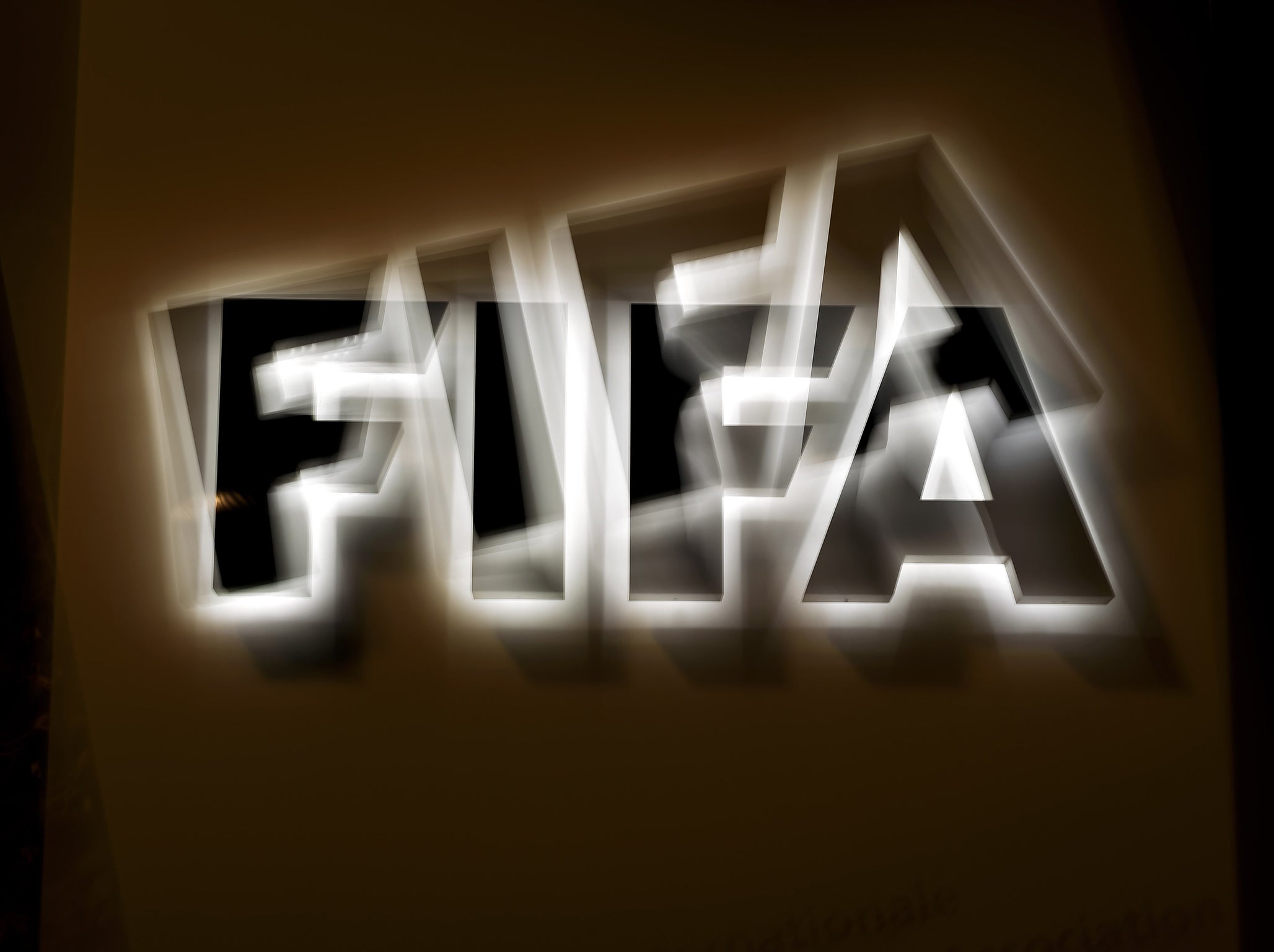
The Morocco 2026 team must submit their bid book, containing all plans for stadiums, infrastructure, transport and so forth by 16 March. Then they would be attended by FIFA inspectors in April to judge the country’s capability to host the tournament. The two bids would then be presented to the FIFA Council on 6 June who will decide if they can proceed to the main vote. On 13 June in Moscow, the day before the 2018 World Cup begins, the 207 member associations – excluding the four candidate hosts – will publicly vote.
This will be the first World Cup host to be decided by Infantino’s new system, rather than the old vote by FIFA’s ExCo (Executive Committee). It is a move towards transparency and democracy, empowering the smaller nations of world football. The Morocco bid hopes that it will work in their favour in four months’ time. “I think it’s a good thing,” El Amrani said, “because we are giving the world the opportunity to vote for the hosting of the World Cup. We are delighted with the way FIFA has made the rules evolve.”
Ultimately it will all come down to politics, both on a global and football level. The American-led bid are big favourites, already having the run on Morocco in terms of organisation and messaging, since their launch last summer. They have the experience, as well as enough infrastructure and stadiums already in place. “We are not concerned with our position, whether we are underdogs or not”, El Amrani insisted. “We are doing our work because, if we entered the race, it’s because we can deliver a fantastic World Cup.”
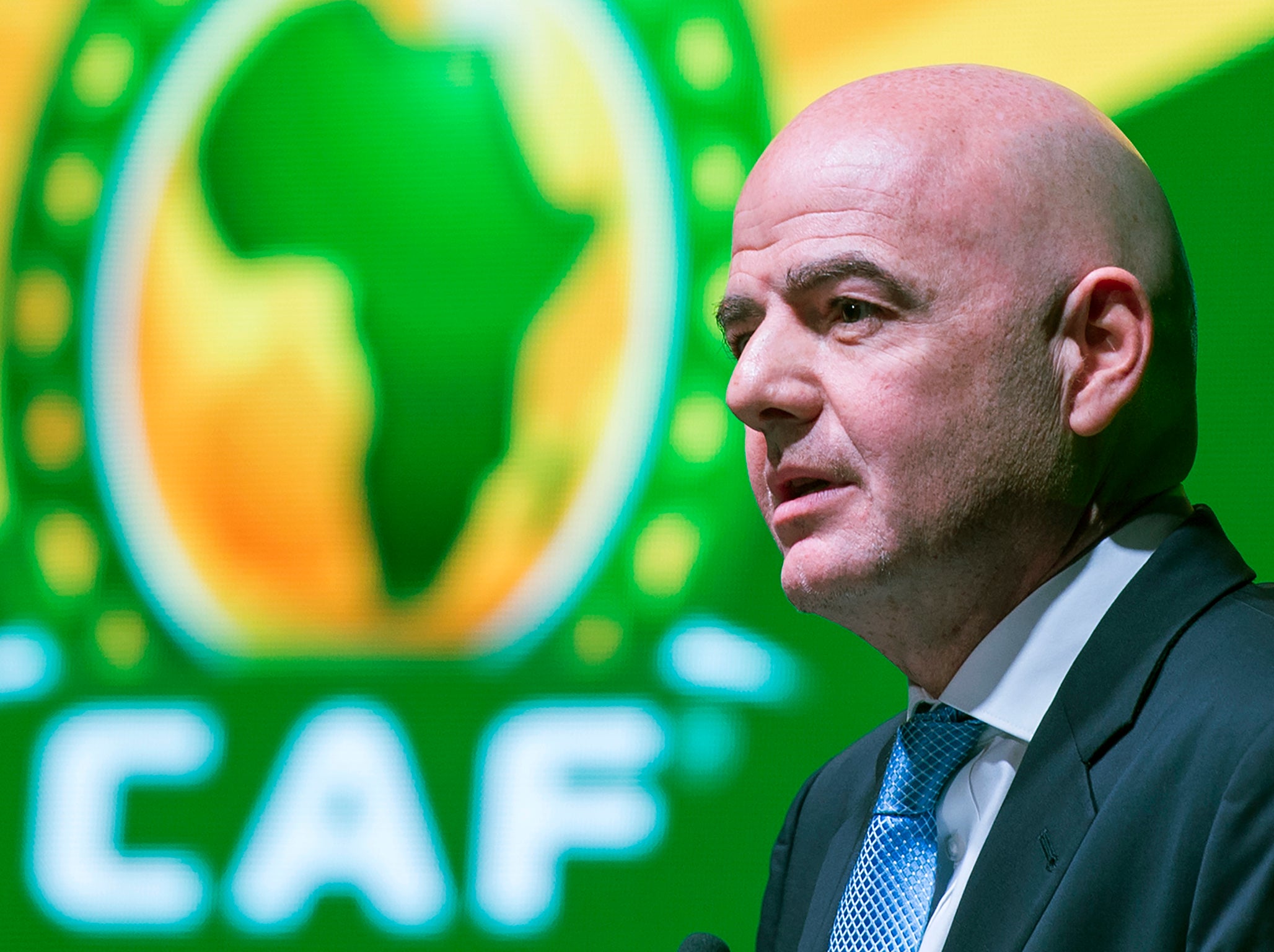
So how can Morocco hope to convince enough of the rest of the world not to make the obvious choice? There is a sense that the global unpopularity of Donald Trump could play in Morocco’s favour, especially from countries reluctant to give the US the obvious propaganda victory of winning the World Cup bid in Moscow, of all places.
But no argument about national pride will be as compelling as an argument about TV money. This will be a World Cup like no other: 48 teams, 80 games packed into 32 competition days. That means four games on most days. Morocco is on the same time-zone as the UK, so if it were to host the World Cup then all of those games would be easily viewable in Europe and even the Middle East.
Given the importance of the European TV market at a World Cup to FIFA’s revenues, and given the relative cheaper running costs of a tournament in Morocco, the Moroccan bid hopes that profitability could swing the argument way. Even though an American World Cup would spike TV revenues in their own market.
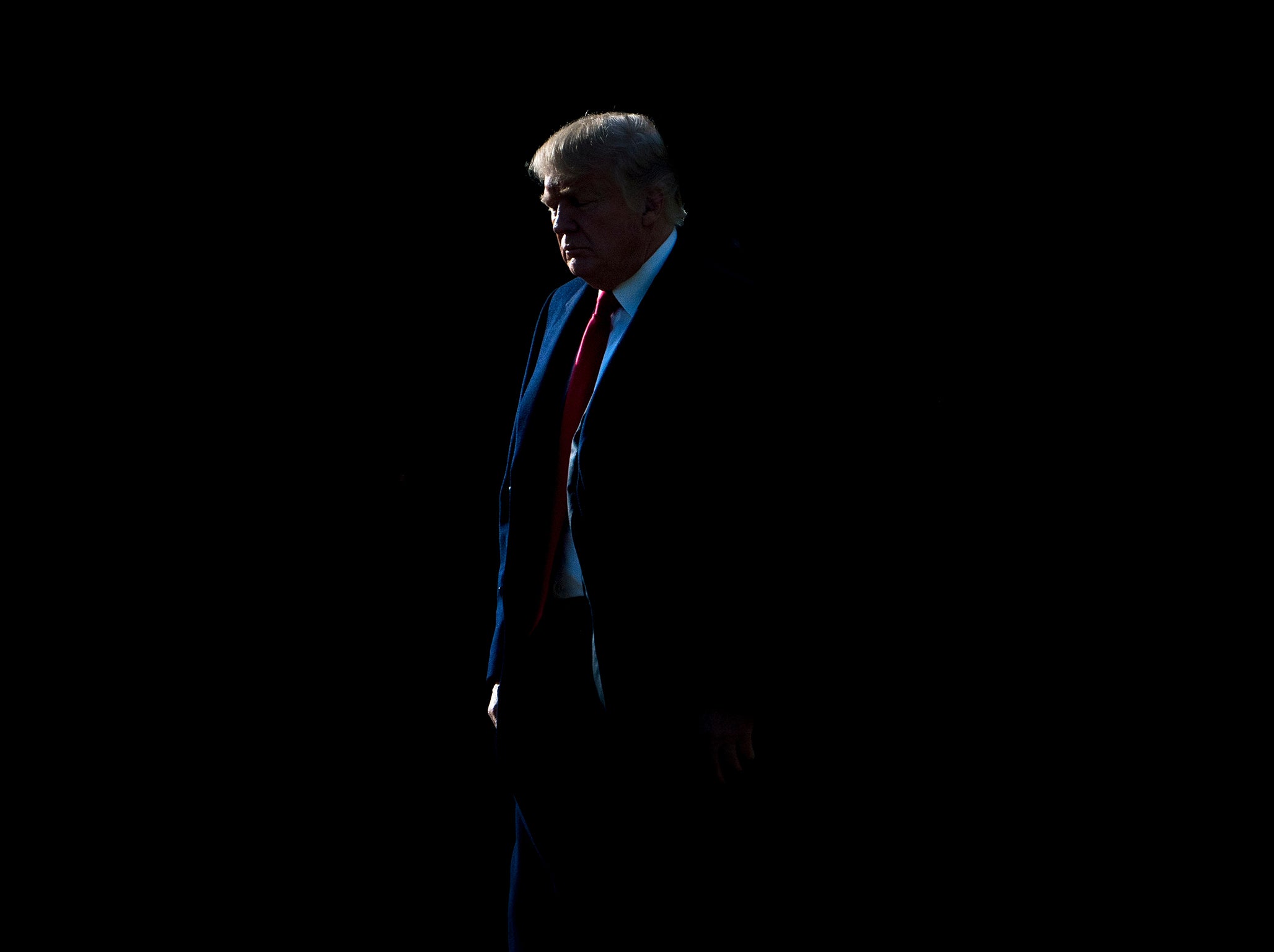
“What represents our strength is our positioning, our location,” El Amrani said. “In terms of profitability, the World Cup is going to have 16 nations from Europe and nine from Africa that are within the same time-zone. Europe is more than half the world in terms of revenue generation. And the Middle East is increasingly important.”
And then there is an argument about transport and journey times for players and fans, far simpler than the trans-continental three-currency adventure that would be the alternative. “Morocco offers quite a compact solution,” El Amrani said. “The venues that will be proposed will not be more than one hour 15 flight between them. Players who will travel less will rest more, and hopefully will produce a better quality of football.”
It might sound unlikely for the big power-brokers of Europe and Asia to get behind Morocco, rather than the American-led bid. Theirs is a concise pitch, an argument ultimately about logistics and TV. But they are a nation of 33million people, up against the combined might of half a billion, and three of the world’s top 20 economies. With four months until the vote, they have plenty of convincing to do.
Join our commenting forum
Join thought-provoking conversations, follow other Independent readers and see their replies
Comments